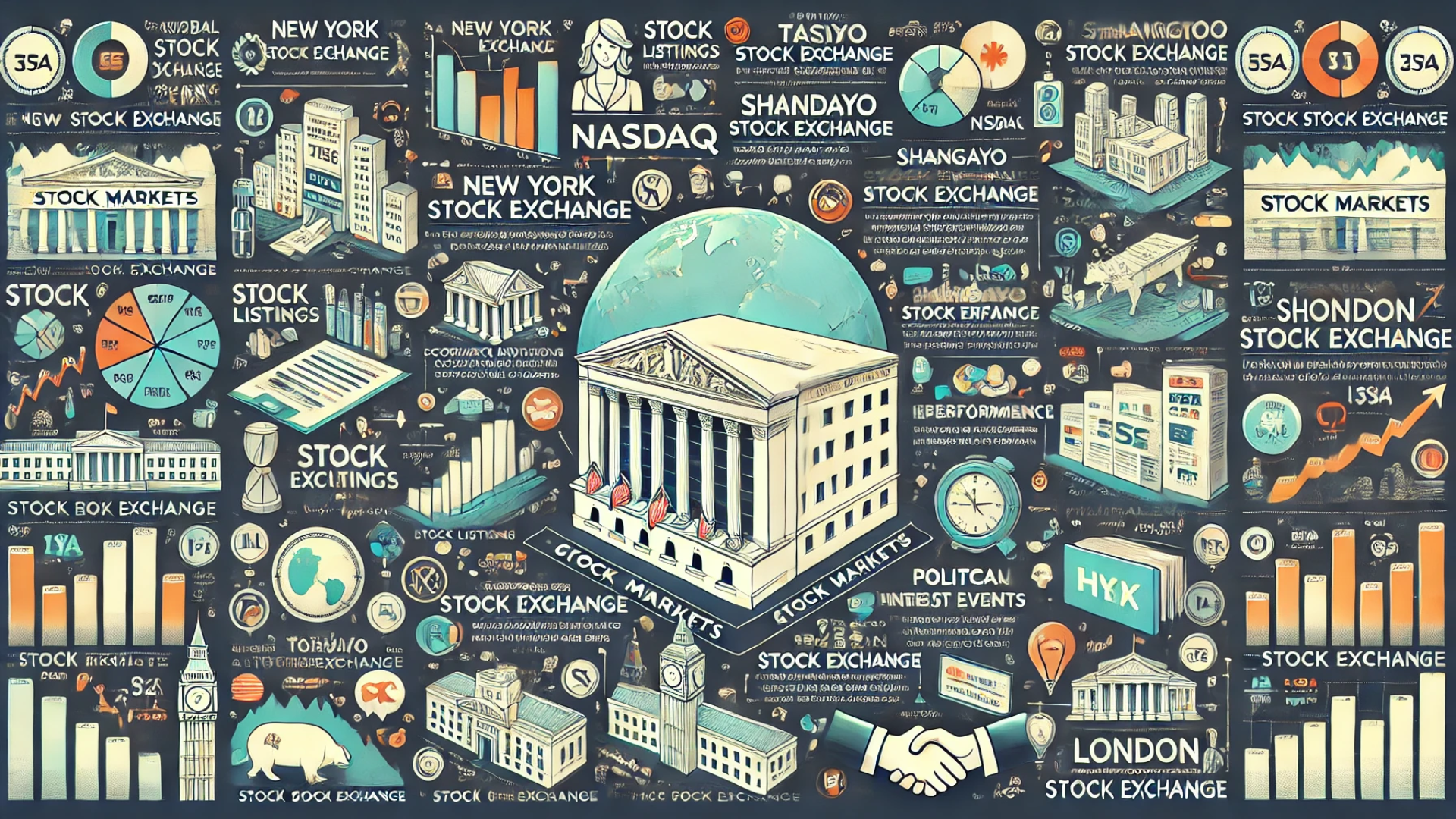
Navigating the global stock markets can seem daunting, but it doesn’t have to be. This guide breaks down the basics, covering major stock exchanges, how they operate, and key factors that influence stock prices. Whether you’re a beginner or just need a refresher, this article will help you understand the essentials of global stock markets.
What Are Stock Markets?
Stock markets are platforms where investors buy and sell shares of publicly traded companies. These markets facilitate the exchange of stocks, bonds, and other securities. The primary purpose is to provide a space where companies can raise capital by issuing shares, and investors can profit from their investments.
Major Global Stock Exchanges
There are several key stock exchanges around the world, each playing a crucial role in the global economy:
- New York Stock Exchange (NYSE): Located in the United States, the NYSE is the largest stock exchange in the world by market capitalization. It lists some of the most well-known companies, including blue-chip stocks like Apple, Microsoft, and Coca-Cola.
- Nasdaq: Also based in the United States, the Nasdaq is known for its high-tech listings, including giants like Amazon, Google, and Facebook.
- Tokyo Stock Exchange (TSE): The largest stock exchange in Japan, the TSE lists major Japanese companies such as Toyota, Sony, and Honda.
- Shanghai Stock Exchange (SSE): Located in China, the SSE is one of the world’s largest stock markets and is home to major Chinese firms like PetroChina and ICBC.
- London Stock Exchange (LSE): One of the oldest stock exchanges, the LSE lists prominent companies from various sectors, including HSBC and BP.
Its here Places to Learn About the Stock Market
How Stock Markets Work
Stock markets operate through a network of exchanges where stocks are listed and traded. Here’s a simplified version of how it works:
- Listing: Companies list their shares on a stock exchange through an Initial Public Offering (IPO). This process allows them to raise capital from public investors.
- Trading: Investors buy and sell shares through stockbrokers. Trades can be executed electronically or on the trading floor, depending on the exchange.
- Prices: Stock prices fluctuate based on supply and demand. When more people want to buy a stock (demand), its price goes up. Conversely, when more people want to sell (supply), its price goes down.
Factors Influencing Stock Prices
Several factors can influence stock prices, including:
- Economic Indicators: Data such as GDP growth, unemployment rates, and inflation can impact investor sentiment and stock prices.
- Corporate Performance: Earnings reports, management decisions, and company news play a significant role in how a stock is valued.
- Interest Rates: Central banks’ decisions on interest rates can affect borrowing costs and investment returns, influencing stock prices.
- Political Events: Elections, government policies, and international relations can create market volatility and affect stock prices.
- Market Sentiment: Investor perceptions and emotions can drive market trends, sometimes leading to irrational price movements.
Investing in Global Stock Markets
Investing in global stock markets allows investors to diversify their portfolios and potentially enhance returns. Here are some steps to get started:
- Research: Understand the markets you want to invest in. Keep up with global economic news and trends.
- Diversify: Spread your investments across different sectors and regions to mitigate risk.
- Use ETFs: Exchange-Traded Funds (ETFs) can provide exposure to a broad market index or sector without the need to buy individual stocks.
- Consult a Financial Advisor: If you’re unsure where to start, seeking advice from a professional can help tailor your investment strategy to your goals and risk tolerance.
Conclusion
Global stock markets play a crucial role in the world economy, providing a platform for companies to raise capital and for investors to grow their wealth. Understanding how these markets work and the factors that influence them can help you make informed investment decisions. Whether you’re looking to diversify your portfolio or simply learn more about the world of finance, keeping an eye on global stock markets is essential.
FAQs
Q: What is the difference between the NYSE and Nasdaq?
A: The NYSE is known for listing larger, established companies, while the Nasdaq is famous for its high-tech and innovative listings.
Q: How do I start investing in global stock markets?
A: Begin by researching different markets, consider using ETFs for diversification, and consult a financial advisor if needed.
Q: What are ETFs?
A: ETFs, or Exchange-Traded Funds, are investment funds that trade on stock exchanges, much like individual stocks. They provide exposure to a wide range of assets.
Q: Why do stock prices fluctuate?
A: Stock prices fluctuate due to supply and demand, economic indicators, corporate performance, interest rates, political events, and market sentiment.

